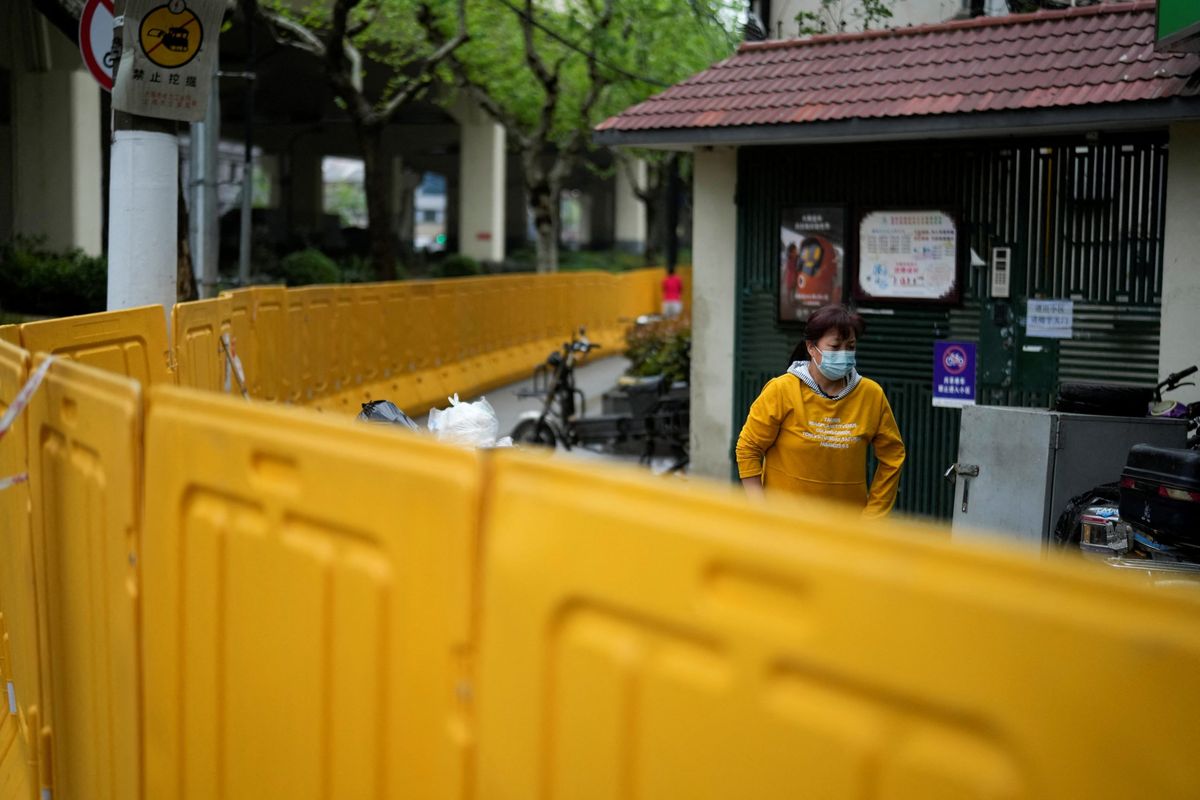China tightens COVID rules despite consecutive drops in daily infections

A few minutes every morning is all you need.
Stay up to date on the world's Headlines and Human Stories. It's fun, it's factual, it's fluff-free.
China has been seeing a consecutive drop in COVID cases lately. Yet, authorities have continued to tighten measures (on top of Shanghai’s lockdowns) to achieve the government’s COVID-zero policy.
Now videos about the tightened policies have been going around on China’s social media platforms – and some of them have sparked public outrage. In one viral video, officials in hazmat suits break down an apartment door to take one of the residents to a quarantine facility. In another, officials come to collect residents for quarantine after someone on their floor tested positive for COVID.
Some neighborhoods have banned residents from leaving their homes for two or three days, and because of crackdowns on getting groceries and deliveries, food shortages are a problem. Meanwhile, the WHO director general has urged China to rethink its strategy.
Key comments:
“Local governments and officials need to stick to the constitution and laws, and cannot destroy the rule of law for convenience,” wrote Professor Tong Zhiwei at Shanghai’s East China University of Political Science and Law in a lengthy appeal letter widely shared on social media. Since Monday, Tong’s verified Weibo account has been banned from posting, and hashtags with his name are being censored.
“From now on, people who live on the same floor (as COVID cases) must be transported (into quarantine),” said one hazmat-suited enforcement officer in a viral video. “It’s not that you can do whatever you want – unless you’re in America. This is China," said another officer while waving a bottle of disinfectant in his hand. “Stop asking me why. There is no why. We have to obey our country’s regulations and epidemic control policies."
“We have discussed about this issue with Chinese experts, and we indicated that the approach will not be sustainable … I think a shift would be very important,” said the WHO’s director general, Dr. Tedros Adhanom Ghebreyesus, on Tuesday.







Comments ()